On 15 August 2012, an increase in the number of Salmonella Thompson cases was noticed by the Salmonella surveillance in the Netherlands. A case–control study was performed, followed by a food investigation. In total 1,149 cases were laboratory-confirmed between August and December 2012 of which four elderly (76–91 years) were reported to have died due to the infection. The cause of the outbreak was smoked salmon processed at a single site.
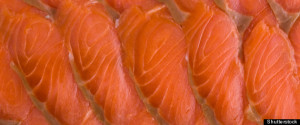 The smoked salmon had been continuously contaminated in the processing lines through reusable dishes, which turned out to be porous and had become loaded with bacteria.
The smoked salmon had been continuously contaminated in the processing lines through reusable dishes, which turned out to be porous and had become loaded with bacteria.
This is the largest outbreak of salmonellosis ever recorded in the Netherlands. The temporary closure of the processing site and recall of the smoked salmon stopped the outbreak. An estimated four to six million Dutch residents were possibly exposed to the contaminated smoked salmon and an estimated 23,000 persons would have had acute gastroenteritis with S. Thompson during this outbreak.
This outbreak showed that close collaboration between diagnostic laboratories, regional public health services, the national institute for public health and the food safety authorities is essential in outbreak investigations.
Eurosurveillance, Volume 19, Issue 39
Friesema I, de Jong A, Hofhuis A, Heck M, van den Kerkhof H, de Jonge R, Hameryck D, Nagel K, van Vilsteren G, van Beek P, Notermans D, and van Pelt W.


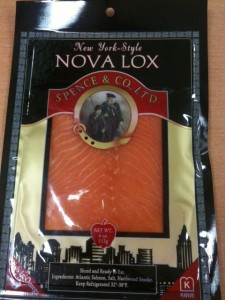

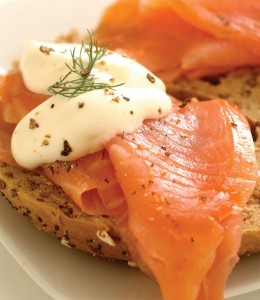

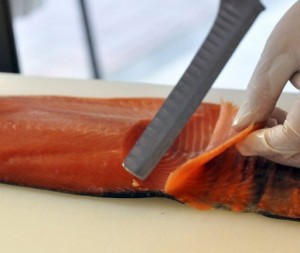
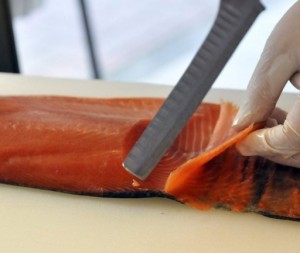
 no, I wouldn’t."
no, I wouldn’t."(1).jpg) concentration of bacteria that was below the federal threshold that would have necessitated a recall, but it is still a cause for concern, said Allen.
concentration of bacteria that was below the federal threshold that would have necessitated a recall, but it is still a cause for concern, said Allen. The problem with such refrigerated, ready-to-eat foods is listeria, the bacterium that’s everywhere and grows at refrigerator temperatures.
The problem with such refrigerated, ready-to-eat foods is listeria, the bacterium that’s everywhere and grows at refrigerator temperatures.  Researchers from USDA’s Agricultural Research Service (ARS) in Wyndmoor, PA, found greater inactivation rates of Listeria monocytogenes occurred in samples processed at higher temperatures and in samples containing higher concentrations of salt and smoke compound. The inactivation rate increased tenfold when the temperature increased by 5° C, indicating that smoking temperature is a main factor affecting the inactivation of the pathogen. In addition, salt and smoke compounds also contribute to the inactivation effect.
Researchers from USDA’s Agricultural Research Service (ARS) in Wyndmoor, PA, found greater inactivation rates of Listeria monocytogenes occurred in samples processed at higher temperatures and in samples containing higher concentrations of salt and smoke compound. The inactivation rate increased tenfold when the temperature increased by 5° C, indicating that smoking temperature is a main factor affecting the inactivation of the pathogen. In addition, salt and smoke compounds also contribute to the inactivation effect.